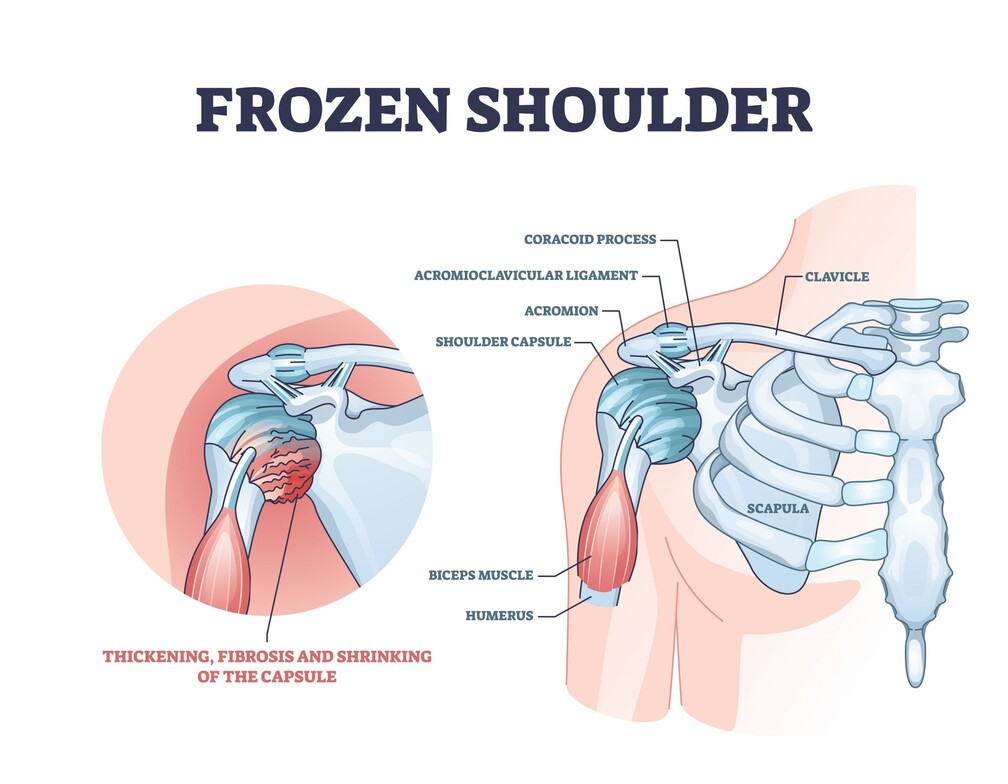
We want to help you feel confident moving your body and reaching your full potential. Whether you’re dealing with a frustrating problem or recovering from an injury, we’re here to help you get back to what your body is capable of. It all starts with understanding what's stopping you.
One condition that can take over your everyday life is called frozen shoulder, or adhesive capsulitis. If your shoulder has been getting stiffer or more painful, you're not alone, and you don’t just have to "wait it out." Let’s learn what frozen shoulder is, why it happens, and what you can do about it.
What is Frozen Shoulder?
Frozen shoulder is when the capsule around your shoulder joint becomes thick and inflamed. This causes it to tighten and form adhesions, or sticky spots, that stop your shoulder from moving freely. Over time, this can make it really hard to lift your arm, rotate it, or reach for things.
Frozen shoulder happens in three stages:
- Freezing Stage – More pain and stiffness.
- Frozen Stage – Pain might go down, but stiffness stays.
- Thawing Stage – Slowly, movement starts to return.
Symptoms of Frozen Shoulder
Frozen shoulder usually happens slowly and can last from a few months to a few years. Common signs include:
- Pain, especially at night or during certain movements
- Stiffness that makes it hard to do things like reaching up or behind your back
- Limited movement in all directions, especially turning your arm out
- Tight muscles or other muscles working harder because you’re avoiding using your shoulder
If not treated, frozen shoulder can cause muscle weakness and bad posture as your body tries to avoid pain.
Why Do People Get Frozen Shoulder?
Frozen shoulder can happen without any clear injury, but certain things make it more likely:
- Age and Gender – It’s more common in people aged 40-60, especially women
- Previous Shoulder Problems – It can happen after surgery, injury, or illness that made you use your shoulder less
- Health Conditions – People with diabetes, thyroid issues, Parkinson's disease, or heart disease may be more likely to get it
- Inflammation – Ongoing swelling can make the shoulder joint tighter
How Do People Get Frozen Shoulder?
Frozen shoulder often starts after you don’t use your shoulder for a while, like after surgery, injury, or illness. It can also happen from using your shoulder too much or from certain health problems. While the exact cause isn’t always clear, the good news is that it can be treated, and you can get your shoulder moving again.
It’s important to remember: just because something is common doesn’t mean it’s normal or that you have to live with it. And no pain should ever feel normal.
What’s Next?
If you think you have frozen shoulder or someone told you to just “wait it out,” there are ways to treat it. You don’t have to go through the pain on your own. With the right help, you can reduce stiffness, get your movement back, and return to doing the things you love!

Dr. Ryan A. DiPrimo
Contact Me



